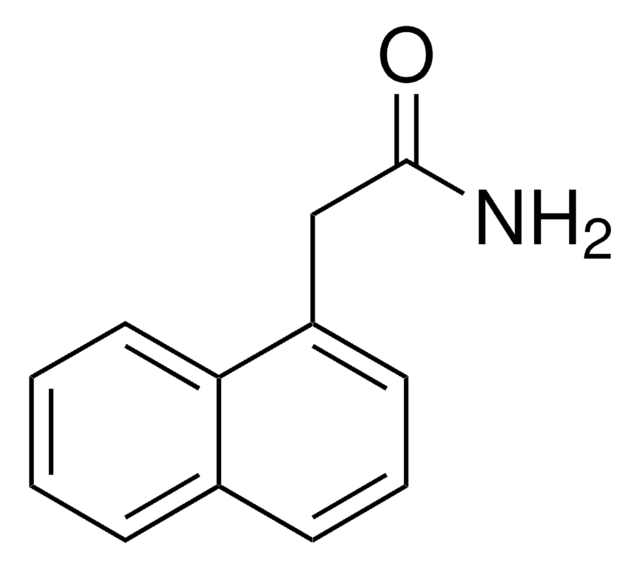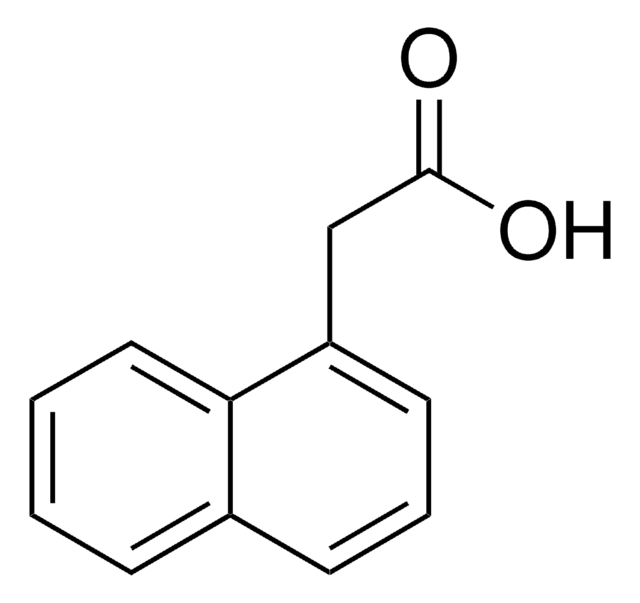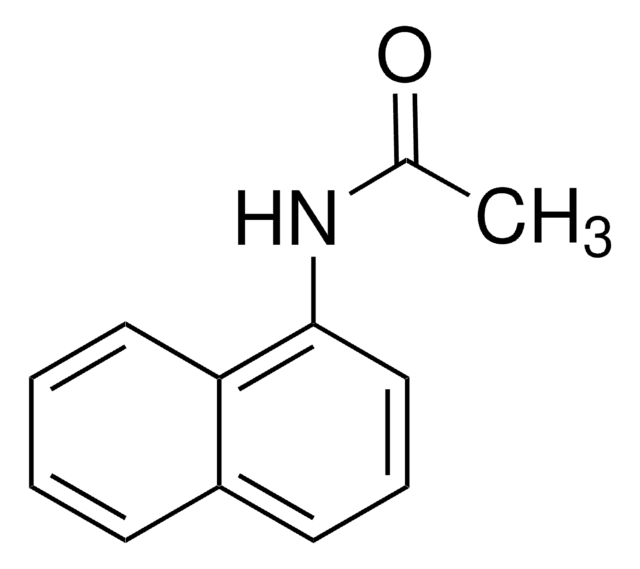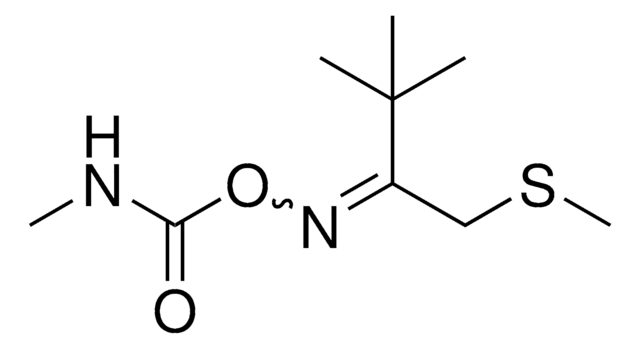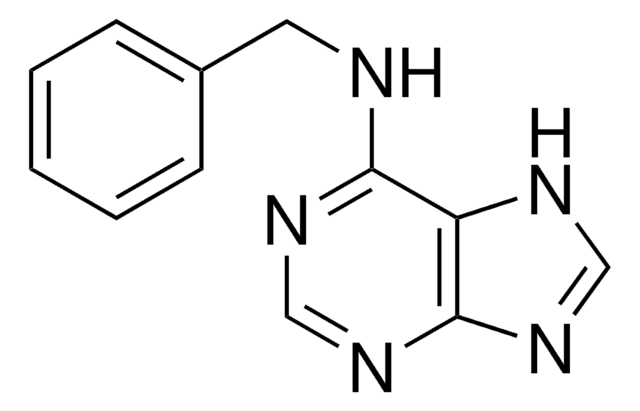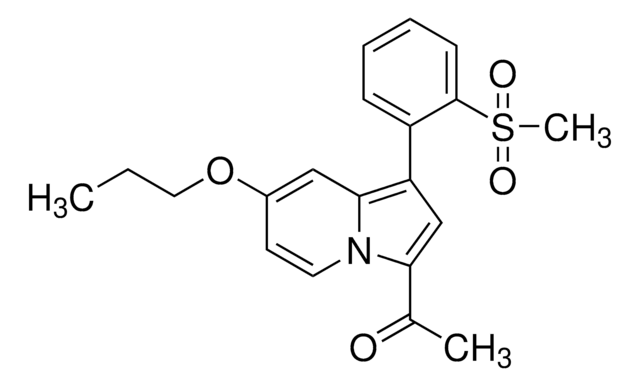CRM43557
1-Naphthylacetamide
certified reference material, TraceCERT®, Manufactured by: Sigma-Aldrich Production GmbH, Switzerland
Synonyme(s) :
1-Naphthaleneacetamide
About This Item
Produits recommandés
Qualité
certified reference material
TraceCERT®
Niveau de qualité
Gamme de produits
TraceCERT®
Durée de conservation
limited shelf life, expiry date on the label
Fabricant/nom de marque
Manufactured by: Sigma-Aldrich Production GmbH, Switzerland
Pf
180-183 °C (lit.)
Chaîne SMILES
NC(=O)Cc1cccc2ccccc12
InChI
1S/C12H11NO/c13-12(14)8-10-6-3-5-9-4-1-2-7-11(9)10/h1-7H,8H2,(H2,13,14)
Clé InChI
XFNJVKMNNVCYEK-UHFFFAOYSA-N
Vous recherchez des produits similaires ? Visite Guide de comparaison des produits
Description générale
Certified content by quantitative NMR incl. uncertainty and expiry date are given on the certificate.
Download your certificate at: http://www.sigma-aldrich.com
1-Naphthylacetamide (NAA) is a synthetic plant auxin that functions as a plant growth regulator. It encourages growth and root formation and prohibits pre-mature shedding of fruits and flowers. It is either applied as a foliar spray to fruits and vegetables or as a seed treatment to promote root formation.
1-Naphthylacetamide is approved for use in the European Union as per the Commission Implementing Regulation (EU) No. 786/2011 in accordance with Regulation No. 1107/2009 for placing the plant protection agents in the market. Following Commission Regulation (EC) No 2016/1015, the maximum residue limit (MRL) for 1-naphthylacetamide and 1-naphthylacetic acid in frozen/fresh fruits and tree nuts is set as 0.06 mg/kg.
Application
The 1-Naphthylacetamide CRM may also find the following uses:
- Development of a multi-residue method for the determination of 24 plant growth regulators in 50 grape samples using a modified QuEChERS method and liquid chromatography-tandem mass spectrometry (LC-MS/MS)
- Multi-residue determination of 200 pesticides and their metabolites in honeybee samples using liquid and gas chromatography coupled with tandem mass spectrometry
- Development and validation of a modified QuEChERS-based method to determine 207 pesticide residues in honey samples using liquid and gas chromatography coupled to tandem mass spectrometry
- Simultaneous determination of 267 pesticides, their metabolites, and polychlorinated biphenyls in low-mass beebread samples using liquid and gas chromatography in combination with tandem mass spectrometry
- Development of a method based on the use of many isotopically labeled internal standards to compensate for the matrix effects arising in the multi-residue analysis of pesticides in food samples by gas chromatography-tandem mass spectrometry(GC-MS/MS)
Produits recommandés
Informations légales
Vous ne trouvez pas le bon produit ?
Essayez notre Outil de sélection de produits.
Mention d'avertissement
Danger
Mentions de danger
Conseils de prudence
Classification des risques
Acute Tox. 4 Oral - Aquatic Chronic 3 - Eye Dam. 1 - Repr. 2
Code de la classe de stockage
11 - Combustible Solids
Classe de danger pour l'eau (WGK)
WGK 3
Point d'éclair (°F)
Not applicable
Point d'éclair (°C)
Not applicable
Faites votre choix parmi les versions les plus récentes :
Certificats d'analyse (COA)
Vous ne trouvez pas la bonne version ?
Si vous avez besoin d'une version particulière, vous pouvez rechercher un certificat spécifique par le numéro de lot.
Déjà en possession de ce produit ?
Retrouvez la documentation relative aux produits que vous avez récemment achetés dans la Bibliothèque de documents.
Notre équipe de scientifiques dispose d'une expérience dans tous les secteurs de la recherche, notamment en sciences de la vie, science des matériaux, synthèse chimique, chromatographie, analyse et dans de nombreux autres domaines..
Contacter notre Service technique